SAKURA QUEST
STATUS
COMPLETE
EPISODES
25
RELEASE
September 21, 2017
LENGTH
24 min
DESCRIPTION
Five young women have one thing in common—the careers they planned for themselves weren’t working out. Job dissatisfaction, trying to make ends meet, and personal insecurities lead each of them to start working at a local tourism bureau where their lives become intertwined. As the girls experience their first year on the job, they learn a lot about their town, their industry, and themselves.
(Source: Crunchyroll)
CAST
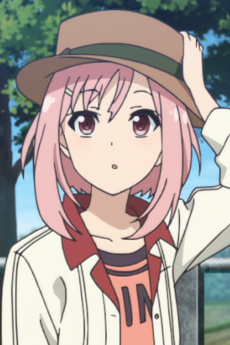
Yoshino Koharu

Ayaka Nanase
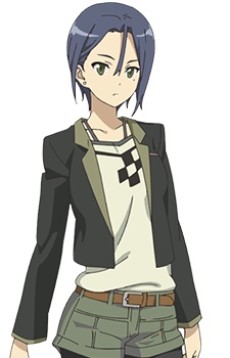
Maki Midorikawa

Chika Anzai

Shiori Shinomiya
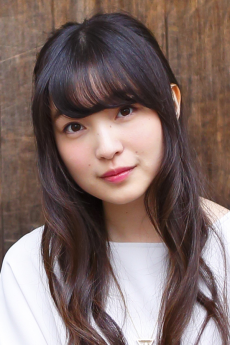
Reina Ueda
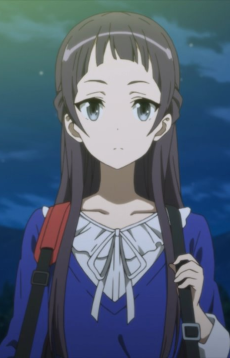
Ririko Oribe

Chiemi Tanaka
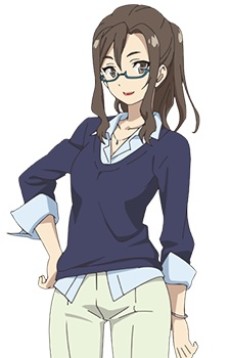
Sanae Kouzuki

Mikako Komatsu
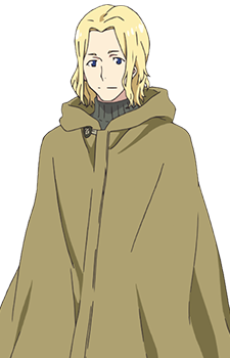
Alexandre Cena Davis Celibidache

Vinay Murthy
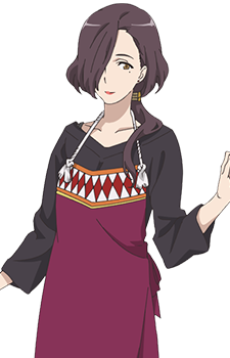
Angelica

Nanako Mori
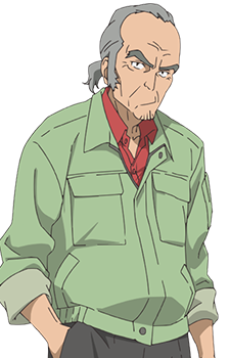
Ushimatsu Kadota
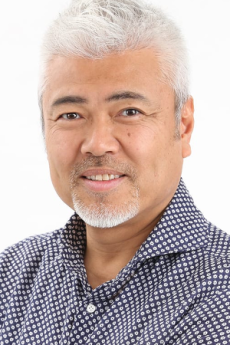
Atsushi Ono
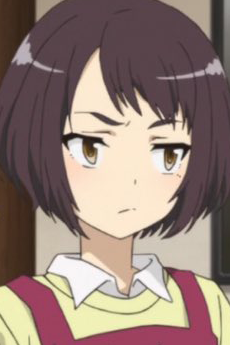
Erika Suzuki

Tomoyo Kurosawa
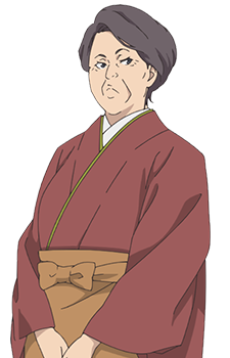
Chitose Oribe

Maki Izawa
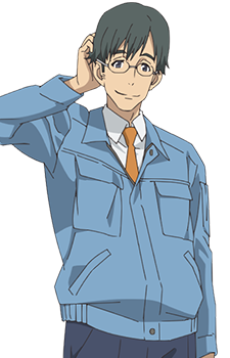
Minou
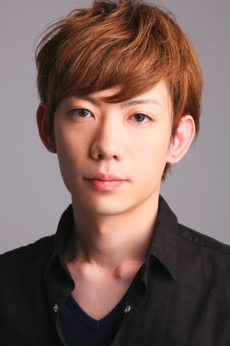
Daiki Hamano
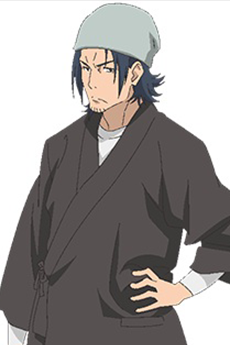
Kazushi
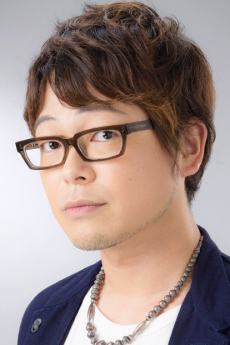
Kazuyuki Okitsu
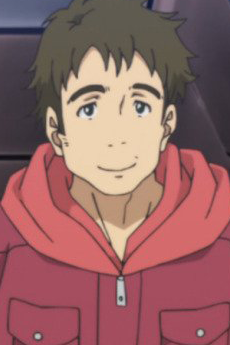
Tatsuo

Ikuji Nose
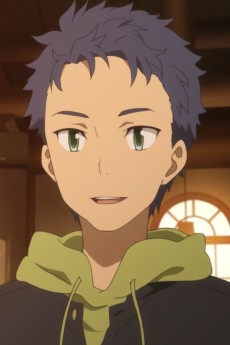
Kosuke Midorikawa

Yuusuke Kobayashi
EPISODES
Dubbed
RELATED TO SAKURA QUEST
REVIEWS

brainiac1530
80/100A show about a dying market lacks mass market appeal. The irony is razor sharp.Continue on AniListSakura Quest is a show which lacks for nothing but marketability. Thankfully, this doesn't actually affect viewer experience. It only serves to get things noticed in a crowded market. One may ask, "How does an anime outside the usual, marketable trends get made in the first place?" That has everything to do with the production team behind it, you see.
Progressive Animation Works (hereafter P.A. Works) has a very indicative name. It's clear from the name alone that the intent of the studio was to push the medium forward. One can see several of the latest trends in anime production by viewing P.A. Works shows alone, though some studios are comparable in these areas. They've had at least modest success with other anime-original projects, such as Shirobako. This has seemingly emboldened them enough to take on themes which are rarely seen in anime due to demographics issues.
Sakura Quest is a story of change. It's told through familiar methods, even if the content is unfamiliar. Most of the roadmarks of the Hero's Journey are present here. It's not a bad thing to base your story on familiar building blocks. There certainly are realist works of fiction that abandon this framework, but it's a hard thing to do. For every "Madame Bovary" there are perhaps a million amateur works that fail completely on a basic level. Sakura Quest probably could not afford to have an alienating form in addition to its unfamiliar content.
As someone who grew up in a rural setting, the idea of a "ghost town" is familiar to me. They generally result from a macroeconomic change. In my home state, many were created by the coming of railroads, which put the steamboat industry out of business. It's not unusual to see abandoned gas stations in the U.S. due to the building of new roads, such as the interstate highways. Whenever a market changes significantly, there are always people and businesses left behind. In this case, there's an entire community left behind by the times.
Manoyama may be a fictional place, but its situation is one that many rural places in Japan today face. The pressures of low birthrates and continuing urbanization have led to a depopulation of rural areas. It's just this realistic setup that encourages them to embark on a very animesque solution. That is, to hire a cute girl from out of town to become a representative of the town itself and encourage tourism.
Enter our protagonist. Much like the town itself, Yoshino Koharu has been left behind by a difficult job market and a young person's lack of particular skills. Despite an initial and very understandable reluctance to take on such a strange and open-ended job, Yoshino soon takes to it like a fish to water with her can-do attitude and sheer pluck. There are many challenges on the way, and like any real-world problem there's probably no "right" solution. The first of these challenges is to get some people on her side, because she certainly isn't going to solve this problem on her own.
One would be tempted to think that the local chairman of tourism, Kadota, would be the first person in her corner, but he's more of an impediment for most of the series. Despite his age, he has a lot of growing up to do and he's living in the past to a large extent. The one good thing that can be said about him is that he's willing to change things, even if he has no idea what. The rest of the town isn't so friendly to the idea. Unsurprisingly, the people most open to change turn out to be other young people.
Because this is an anime, these other young people are cute girls in familiar archetypes. The main difference here is that these young girls are actually adults in situations not unlike Yoshino's. Sanae moved to the country hoping that country life would sound more appealing on her blog. She's the girl in glasses. Maki moved back home, unsure what to do with herself after a failed attempt at an acting career. She's the cool beauty. Shiori is the homemaker who isn't already married for some inexplicable reason. Ririko is a recent high school graduate who's living at home due to her social awkwardness. She's the kuudere. None of these girls join Yoshino without going through a character arc of their own, though.
These aren't the only characters in Sakura Quest, and I think this is one of the better parts of the show. The supporting cast is actually very large, and it creates an increased sense of community and verisimilitude. Even many of these get story arcs of their own, which fit with the overall theme of change. These also often showcase some aspect of the community and make it come alive.
This world-building is actually rather important to Sakura Quest, since it's more of a story of an entire community than a single person. Assisting in this area is the artwork, which is very clean and attractive, even when it's depicting a permanently shuttered storefront. It's easier to get emotionally invested in a beautiful place full of attractive people. There's plenty of expressive character animation too, to help the viewer get attached to the characters. It's all strung together by competent direction. There's a lot of perspective shots, and viewing angle changes as necessary to create a sense of space.
The careful construction of P.A. Works extends even to the sound. The music is excellent and fitting, and the OP/ED sequences are among the best this year has to offer. The voice acting is on-point. They even managed to find a fluent English speaker to play the recurring foreign character, Sandal, and Spanish speakers for one particular episode. All of these things combine to make a show that's easy and enjoyable to watch.
Everyone who watches anime should watch Sakura Quest. Much like the town of Manoyama, it has a lot of charm and personality of its own. It's probably too much to ask for the core anime demographic of young, urban people, especially teenage boys, to relate to its themes, but the viewing experience is good enough even if it's exploring areas totally unfamiliar to the viewer. The worst thing I could say about Sakura Quest is that it might not be quite as good as some other things I've seen, but that's nitpicking at best. In my experience, if I have to resort to this kind of argument to criticize a show, it's definitely one of the better ones.

AdmiralNyan
87/100Sakura Quest & the Impact of Dying Small Towns on the Japanese Social & Cultural EconomyContinue on AniListSakura Quest is about the small town of Manoyama and a group of girls who either moved there for work from larger cities like Tokyo or were born and raised in the town itself. These women come together under a common ground of revitalising a place that was once filled with rich Japanese culture and history but has recently started dying due to a lacking population and high decrease in tourist traffic.
I know, the premise in its simplest form, doesn’t sound like it would be that interesting or fascinating. When I first read the synopsis, I was pretty sceptical about it. Yet, after having seen it in its entirety, I feel that Sakura Quest is probably one of the most insightful and educational serials that I have ever seen, as well as quite inspirational.
Japan is an extraordinary nation. When most people hear the name “Japan” they immediately think of places like Tokyo, where the city life is sensationally bustling and active, or Kyoto, where the history and culture is rich and lush with temples and shrines. There’s even Akihabara, the centre of otaku culture and technology. Rarely do people ever ponder what the countryside or small towns are like. Even in Japan itself, many youngsters who are born and raised in small towns are seeking avenues of escaping their homes. They are moving to more suburban and highly populated areas. Because of this these local venues are fading away into the distance, which is a terrible shame because the core of Japanese culture and identity, the true essence of what Japan once was and how it has come to be what it is now, resides in places like Akita, or in the anime’s case, Manoyama.
That’s what Sakura Quest is about. The series shines a light on the dying locales of Japan and how it significantly impacts the nation as a whole, not just the people who live in these specific areas, as well as the different tactics that these places try out for revitalisation, and it does it with a gradual, character-driven chronicle, a cast with varying yet relatable circumstances, and beautiful animation.
The anime begins with us following a woman named Yoshino who recently graduated from college and is having a tough time finding a job in the big city. So, when she is offered a temporary acting gig in the small town of Manoyama, she accepts it. When she moves to Manoyama, she isn’t charmed by it. It feels like a ghost town with how empty the streets are and how quiet the ambiance is. The people are also a bit timid and awkward to her. Yoshino is positively ready to get the hell out and try her luck back in the city once more. However, she doesn’t leave. She comes damn near close to it, but as she meets and interacts with the individuals of the city, she grows passionate about its rejuvenation and eventually finds a homely comfort there that she didn’t realise she was lacking in her life. A simple notion of discovering oneself in a place that you would least expect to is probably one of my favourite types of narratives.
Yoshino’s self-discovery and uncertainty about her future is an allegory for the precarious future of Manoyama. They work parallel to one another the entire time during the anime. With each discovery and set-back that she has, you will see a similar occurrence pertaining to the town. In this way, the anime makes the economic struggles of a tiny city accessible to everyone. It’s not limited to watchers that have an interest or passion in that very precise subject matter, but recognisable by any person who has ever had similar difficulties in their lives; it humanises it. It creates a thread between the audience and the town, which helps to place the rather real-life aspects of its problems into perspective.
In Japan, the core of the small town culture exists within the people and their experiences. For example, you have a woman named Chitose Oribe, who owns a confectionary store. She’s depicted as being this hard-arse type of person that is quite aloof. Yet, underneath all of that is a woman who was raised in Manoyama. A girl who once wanted to be a musician. But things ended up not working out due to certain circumstances and she inherited the family business instead. Her aloofness stems from her bitterness at not being able to pursue her dreams. However, by remaining in Manoyama, she came to appreciate the town as well as her Japanese heritage.
We have another character who is a local mechanic that dabbles in engineering. A lot of things that he invents are rather incredible and would probably be a big hit in larger cities, or a huge draw for tourism. Yet, he is an older gentleman and doesn’t really know how to market this gadgets and gismos. People view him as eccentric and a bit of an outsider, but his passion for his creations—the joy it brings him—and the uniqueness of their designs are something you’d never see outside of this small town. Beyond his skills, he’s actually a lonely individual who ponders the future of his home like many others.
Similarly to him, many of the other characters are aging, and with all of the youth leaving their hometowns for energetic and fast-paced environments, when the elderly pass on, so will these towns. I remember reading an article last year that talked about how the growing metropolitan places are affecting Japan. In many instances, the towns and villages are being torn down. This can be beneficial because it allows that land to be returned to nature. Nevertheless, the economy suffers because many things in those larger cities are produced and sent in via small towns. When a more efficient method is discovered, the towns lose their only source of income and livelihood, which then puts more people out on the streets or worse. Fewer towns means fewer tax dollars and increased pressure on the governing parties, plus of bunch of other stress factors.
In Sakura Quest, we see how the lack of funds from a non-existent tourist season affects the budgets of the town, making it significantly more challenging for them to work on actual revitalisation. Tons of effort goes into making even the slightest of positive changes. When those changes do occur, they tend to arrive in waves and phases that last for a hot second and then dissipate. The concentration on these aspects within the anime may seem unexciting and humdrum, but once again, when you tie them to characters that have emotionally evocative contentions, it is quite difficult not to get invested and to not want to know more.
I found the symbolism in Sakura Quest to be one of the most essential things to ever have been portrayed in the anime medium. It really highlights the dilemma of a country that many love and appreciate, but also who don’t truly grasp what the country is going through on such an intimate level. Everyone has this fantasised idea of what Japan is, thus taking it and most of its difficulties for granted. It’s ridiculously easy for Westerners to say, “If Japan did this, then they could do this,” or “If Japan did this, then they wouldn’t be struggling as much,” and more. Nonetheless, the gravity of their situation and its effects on their future is far more complex and deeper than many people realise. It goes so far beyond “do this” and “don’t do this.” Sakura Quest allows us, the outsiders, and youngsters, to understand why that is.
Even on the surface, Sakura Quest isn’t a simple and straightforward story. It’s so incredibly multi-dimensional. There are a bunch of women trying to work through their own shit by focusing on facets outside of those respective problems. Some of those problems include facing your fears, confronting disappointments, dealing with dysfunctional families, or merely learning to grow the hell up. Then you have an analysis of the profound impact that dying small towns have on an entire country, as well as how cultural identities die in the modernising era, regardless of where you are. Those are just to name a few in much larger jar. So, if the concept of resurrecting tiny towns doesn’t float your fancy, maybe one of these other elements shall. Either way, I’m so glad I invested my time and effort in watching Sakura Quest, and I recommend that you do the same.
8.75 manju outta 10!

Jacklekins
100/100A fantastic anime about small town life, passion, and failure.Continue on AniListSakura Quest is an interesting series in how it approaches small town life and passion. It's focus being on revitalizing a small town in the middle of nowhere, while keeping its townspeople happy and not taking away the things they love about Manoyama. I'll be talking about a few spoilers.
The characters do a really great job of exploring my favorite theme of the series, passion. Each character has something they are passionate about whether it's Maki with acting or Shiori's love for her hometown of Manoyama. The exception to this is Yoshino who doesn't have a passion at the beginning of the series and is resistant to her job at the tourism board, but over time she grows to love her job and finds a new passion in town revitalization.
Despite the passion they have for these things they fail often or entirely give up on their passions. Which is the case for Maki. She returns to her hometown after not making it as an actress and has to rediscover her passion for it, or find a new reason to be passionate about it. As she shows failure is painful. It's frustrating to do your best and not be able to make it. To feel like everyone and everything is against you. It's hard to want to keep going and easy to give up. I struggle with these feelings as well, and often feel that I'm wasting my time or that everyone else is better than I am which makes me want to quit. Maki embodies these feelings but her arc also gives me reason to push forward. If I lose sight of why I'm doing these things I should take a step back and rediscover those passions.
Manayoma is a beautiful town to look at. It's natural feeling and lake make it really pretty. It's also a great setting for this type of story as it feels like it has a personality itself thanks to its local traditions and Chupakabura Kingdom. At a certain point the lake gets drained and an old festival is rediscovered and brought back as a part of the town. The town itself has it's own history and forgotten passions that get rediscovered throughout the series. As someone who grew up in a small town I can understand and appreciate how the characters view it as well as appreciate its natural beauty.
Music wise it's OST is fantastic and I listen to a handful of songs a lot on my own time. Particularly the first OP, both EDs, and the song Thyme. The full OST is really great though and it fits the series exceptionally well.
Sakura Quest is one of my favorite shows because of how it portrays passion, failure, and small town life. It really resonates with me and it's a series I'm happy to have experienced. However, I'm hesitant to recommend it because it's a very niche appeal. If anything I've mentioned seems interesting it's worth a look.
SIMILAR ANIMES YOU MAY LIKE
 ONA ComedyAggressive Retsuko
ONA ComedyAggressive Retsuko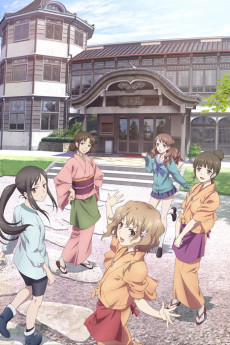 ANIME ComedyHanasaku Iroha
ANIME ComedyHanasaku Iroha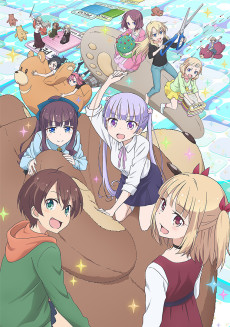 ANIME ComedyNEW GAME!!
ANIME ComedyNEW GAME!!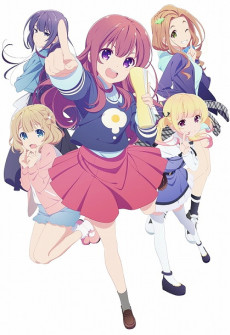 ANIME ComedyGi(a)rlish Number
ANIME ComedyGi(a)rlish Number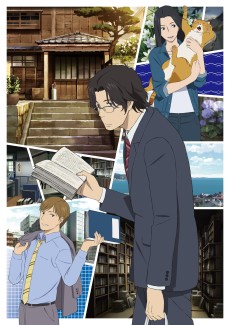 ANIME DramaFune wo Amu
ANIME DramaFune wo Amu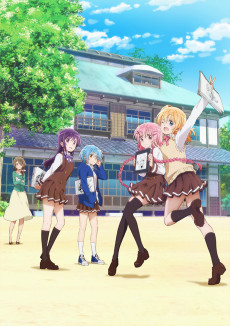 ANIME ComedyComic Girls
ANIME ComedyComic Girls ANIME DramaNagi no Asukara
ANIME DramaNagi no Asukara ANIME AdventureSora yori mo Tooi Basho
ANIME AdventureSora yori mo Tooi Basho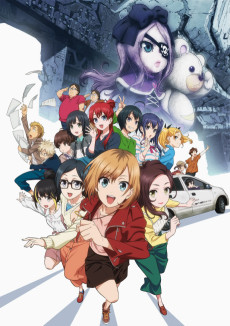 MOVIE ComedySHIROBAKO Movie
MOVIE ComedySHIROBAKO Movie ANIME DramaHibike! Euphonium 2
ANIME DramaHibike! Euphonium 2
SCORE
- (3.6/5)
TRAILER
MORE INFO
Ended inSeptember 21, 2017
Main Studio P.A.WORKS
Favorited by 1,047 Users
Hashtag #サクラクエスト

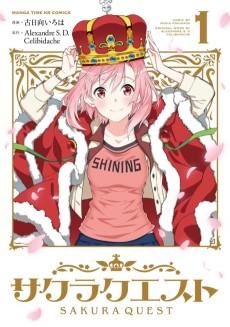


![Futsuu no Joshikousei ga [Locodol] Yatte Mita. Cover Art for Futsuu no Joshikousei ga [Locodol] Yatte Mita.](https://s4.anilist.co/file/anilistcdn/media/anime/cover/medium/bx20611-rfSDOfDVTCuP.jpg)